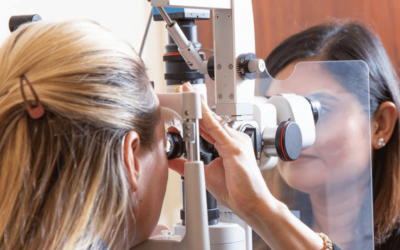Your eyes itch, they’re red, and you constantly feel the urge to rub them. These symptoms could be a sign of a range of issues, including eye allergies and dry eye syndrome. Telling the two apart isn’t always easy because they have similar symptoms. In this blog, we’ll share the differences to help you find the relief you need.
Understanding eye allergies
An allergy occurs when your immune system overreacts to a harmless substance. Many things can trigger an allergic reaction, including pollen, dust mites, mold, animal dander, and certain foods and medications. Some symptoms of allergies include puffiness or swelling, itchy, red eyes, a burning sensation in your eyes, blurred vision, excessive tearing, and sensitivity to light.
Understanding dry eye
In comparison, dry eye happens when you don’t have enough tears or the right kind of tears to keep your eyes moist and comfortable. Along with irritation, you might also experience a stinging or a gritty sensation, itchiness, blurry vision, sensitivity to light, and watery eyes as your body tries to compensate for the dryness. Potential causes include environmental factors such as dry air, hormonal changes, aging, some medications, and certain medical conditions like thyroid disorders.
Tips for differentiating
The main difference between the two conditions is the amount of itching. With eye allergies, itching tends to be more intense. So, if your eyes aren’t itchy or the itch is only mild, dry eye may be the underlying cause.
It’s also important to keep an eye on when your discomfort happens and what might trigger it. Allergies often occur during specific seasons or follow a pattern, especially if you’re sensitive to pollen or pets. Dry eye, on the other hand, might get worse after staring at screens for long periods or spending time in dry, windy environments.
If you’re not sure what’s causing your symptoms, schedule an eye exam in Shelton or Waterbury. Our friendly, experienced eye doctors will examine your eyes and run a series of tests to assess your symptoms and ensure an accurate diagnosis. If you’re diagnosed with dry eye, allergies, or a combination of both, we’ll develop a personalized treatment plan to help you find relief and improve your quality of life. Contact us today to book your appointment!



